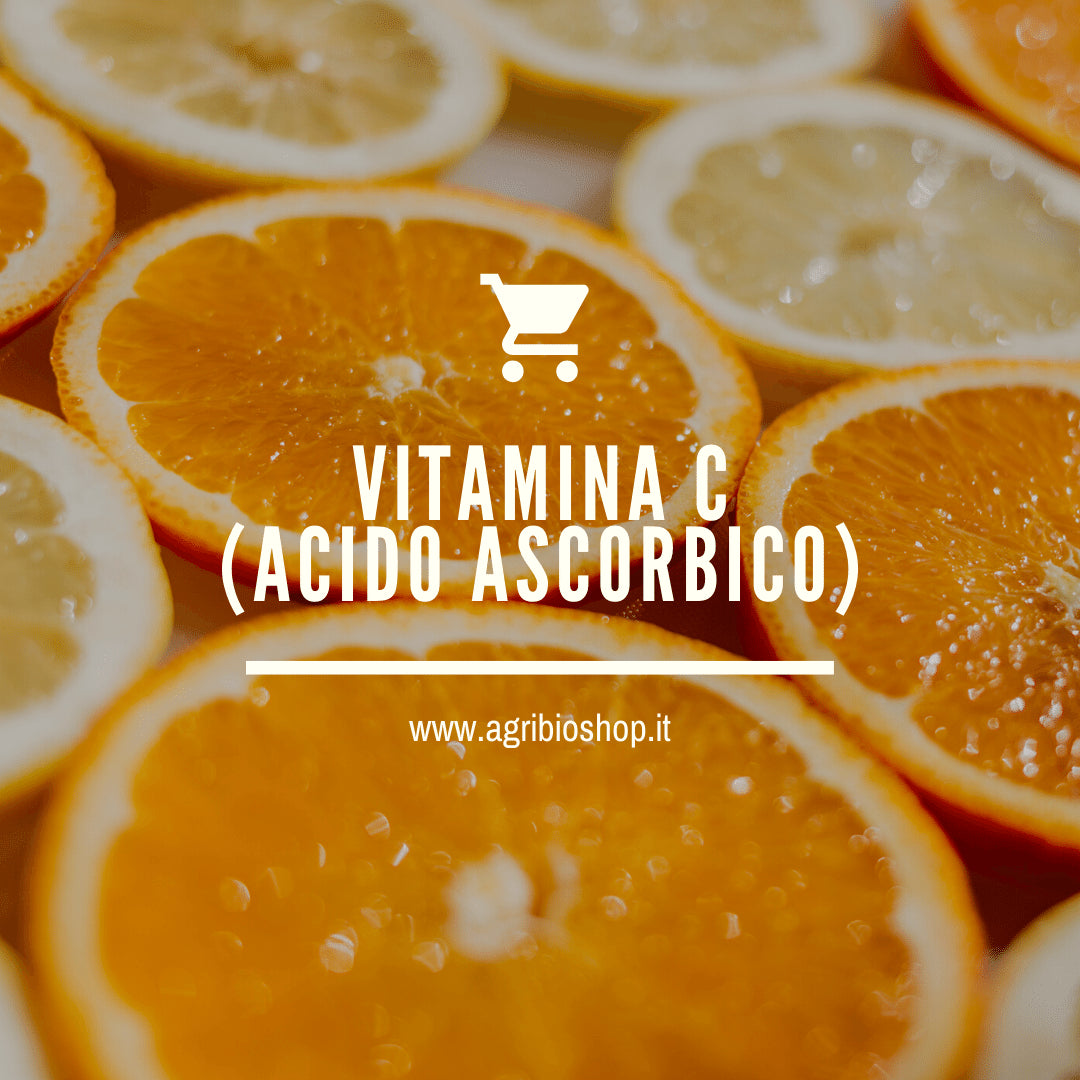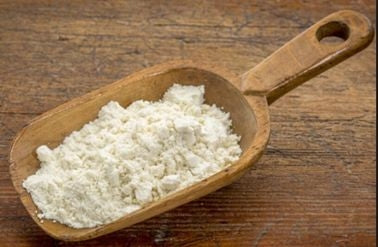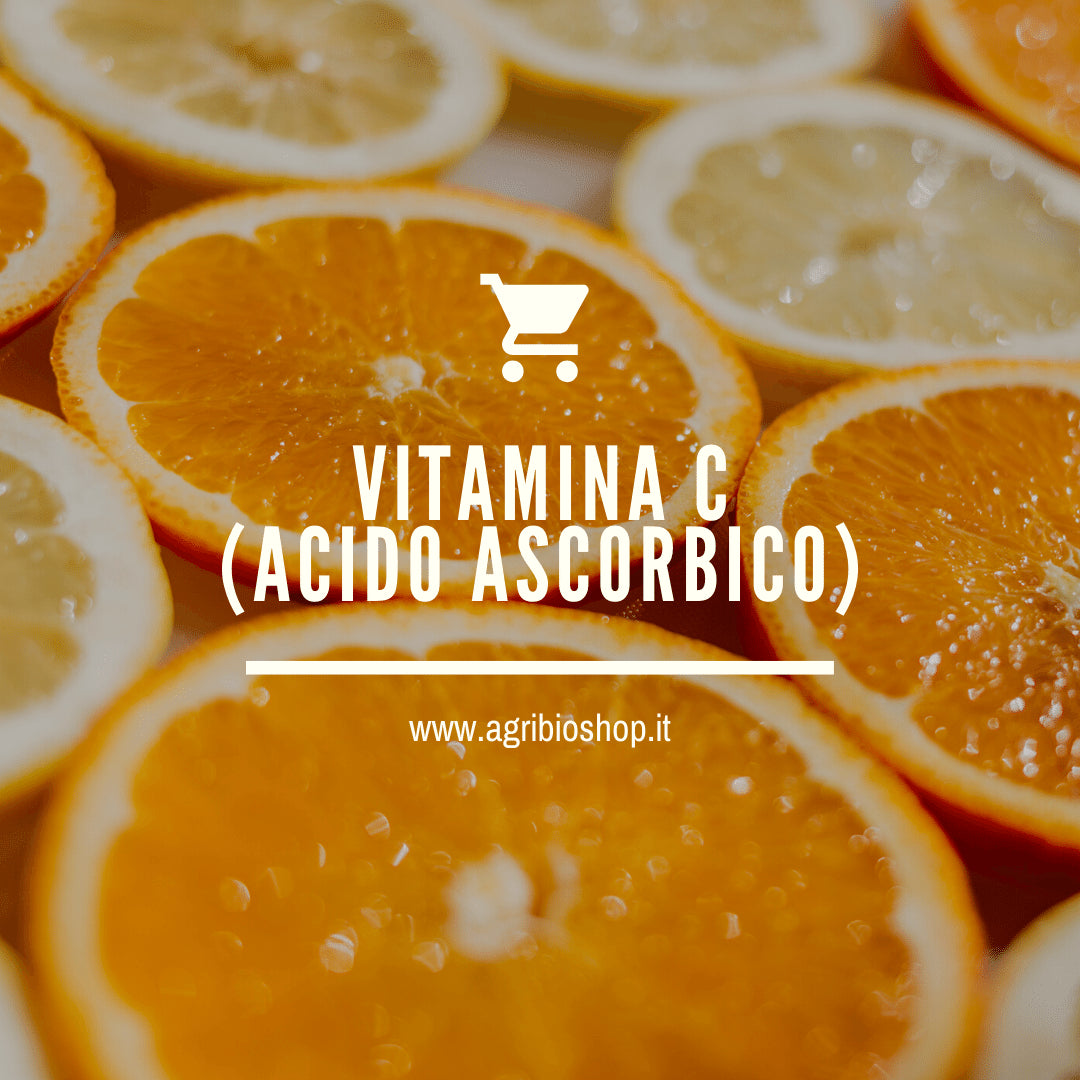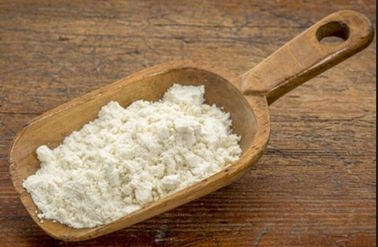ASCORBIC ACID Vitamin C
Have a question?


ASCORBIC ACID Vitamin C
Dettagli
Vitamin C or Ascorbic Acid Vitamin C (ascorbic acid) is a fundamental molecule for our body that nature generously offers us in the form of various foods. Although the antioxidant power is the best-known characteristic of vitamin C, its properties are very numerous: it is immunostimulant and anti-inflammatory it has an antiviral and antibacterial role it supports the synthesis of collagen it helps to increase the absorption of iron from foods it prevents hypertension and high cholesterol Through with a diet rich in fruit and vegetables it is possible to take small quantities of vitamin C, although there are food supplements that can be used in case of need, for example when the vitamin deficiency is very evident. On agribioshop.it you can find the 500 gram pack of vitamin C, which covers you for over 6 months of use, for only €19.50: to be taken mixed with water in the morning on an empty stomach in a dose of 2-3 grams per day. https://www.agribioshop.it/novita-/3613-acido-ascorbic-vitamina-c.html? search_query=acid+&results=115 Vitamin C (or ascorbic acid) is a water-soluble vitamin that plants are able to produce, unlike our body which cannot do so. Absorption occurs in the intestine and its elimination occurs through the filtering mechanism of the kidney. Once absorbed, vitamin C can perform its biological functions both as a cofactor for many enzymes and as a water-soluble antioxidant. Vitamin C is in fact the most powerful antioxidant present in blood plasma and increases immune defenses. Improves the respiratory symptoms of asthma and allergies Vitamin C inhibits the release of histamine, a molecule that is released when you have an allergic reaction and which triggers the typical symptoms of an allergy, therefore it has an anti-allergic action and therefore helps to reduce the symptoms of asthma, which is often associated with allergies. In addition to this, the benefits against bronchial hypersensitivity are also known. Several studies have suggested that vitamin C helps control colds, thereby also alleviating the symptoms of cold-induced asthma. Furthermore, other studies have shown that vitamin C prophylaxis with 3 grams per day can help reduce the duration and severity of respiratory symptoms (colds, sore throat, bronchitis), therefore indicating that vitamin C plays some role in the mechanisms of defense of the respiratory tract. Improves cardiovascular health This vitamin is able to improve the health of the walls of blood vessels also thanks to the deposition of collagen. This action, together with the ability to lower the levels of "bad" LDL cholesterol and triglycerides, while increasing "good" HDL cholesterol, allows the functionality of veins and arteries to be promoted, so much so that vitamin C is a cardiovascular protectant. Furthermore, vitamin C contributes to lowering blood pressure by acting at the level of the central nervous system in the centers responsible for controlling blood pressure. The antioxidant property of vitamin C is important and, thanks to this ability, it helps to counteract the action of free radicals, responsible for premature cellular aging, DNA damage and the development of various pathologies. Furthermore, its synergistic effect with vitamin E and β-carotene in protecting [5] cells from the negative effects of free radicals is known. Useful in cancer prevention The antioxidant action combined with the positive effect on the immune system also makes vitamin C a valid support in the prevention of cancer, for example prostate, esophagus, lung and skin (melanoma). Furthermore, ascorbic acid could have a preventive role since in addition to protecting the structure of DNA and cell membranes from damage by free radicals, it inhibits the formation of nitrosamines, carcinogenic molecules, in the intestine. The action that vitamin C carries out as a "scavenger" of these substances is therefore of great importance. Finally, vitamin C strengthens the immune system as it is able to stimulate the synthesis of molecules involved in immunological processes. We will delve deeper into this aspect below. The immune system is essential for our body to defend itself from infections and diseases. It is a complex system which, to adapt to different stimuli, must generate different types of cells including white blood cells, lymphocytes and natural killer cells. Vitamins are nutritional principles considered essential to ensure the efficiency of our immune system. For example, vitamin C is accumulated in white blood cells with a concentration up to 80 times higher than the plasma level, so as to make more of the vitamin available in the areas of infection and promote defense mechanisms. Conversely, vitamin C deficiency can lead to lower resistance to some pathogens. This is also demonstrated by the fact that in case of infections and stress the quantities of vitamin C in the plasma and white blood cells can decrease. Vitamin C also has a direct action on various cells of the immune system. For example, it is able to increase the production of phagocytes, cells capable of absorbing pathogens or producing enzymes capable of degrading them. Another group of cells involved in immune defenses are natural killers. Vitamin C helps to increase their activity in combating infections from pathogenic microorganisms. Thanks to ascorbic acid, the number and vitality of T lymphocytes is also increased, with a general strengthening of the entire immune system. Causes and symptoms of vitamin C deficiency Vitamin C deficiency causes scurvy, a pathology whose initial symptoms are tiredness, fatigue, inflammation of the gums which are then followed by joint pain, the appearance of edema and petechiae, fragility of the capillaries. All this is due to the lack of collagen synthesis, a process for which vitamin C is essential. Anemia may then occur due to frequent bleeding that may occur. It is therefore an important pathology which if left untreated can be fatal. In general, therefore, the first symptoms of vitamin C deficiency are loss of appetite, tiredness, muscle pain and greater susceptibility to infections. More serious deficiencies can also cause connective tissue and gum problems. Fortunately, nowadays a vitamin C deficiency is quite rare in developed countries, however there are categories of people at risk for deficiency, such as smokers, since smoking inhibits its absorption, people suffering from certain types of cancer, serious intestinal pathologies, kidney diseases and in general all those who do not have adequate variety in their diet. These people should increase their intake of vitamin C. Natural sources of vitamin C Fresh vegetables and citrus fruits are foods rich in ascorbic acid. These include peppers, chili peppers, Brussels sprouts, cauliflower, lettuce, spinach, tomatoes, potatoes, oranges, lemons, grapefruits and kiwis. Cooking involves limited loss if it is short and in a little water or, even better, with steam. However, storage could cause a significant loss of vitamin C from foods if they are exposed to the air for long periods, to the sun or if stored in copper containers which cause oxidation.



